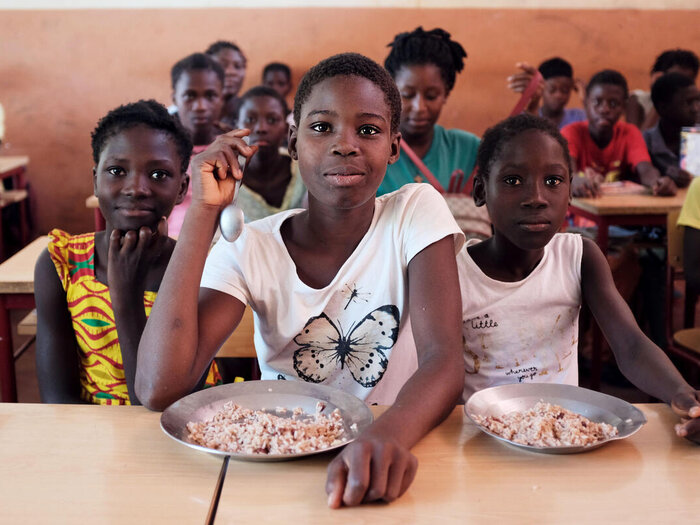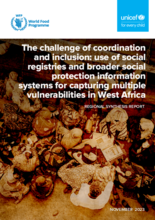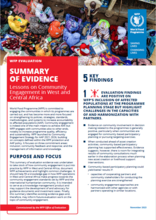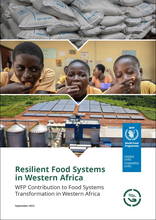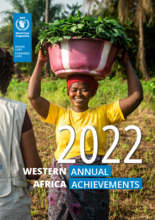Guinea-Bissau
- 64.4%
- of people live in poverty
- 68%
- cannot afford a healthy and nutritious diet
- 4th
- most vulnerable country to climate change
Guinea-Bissau is a low-income, food-deficit country in West Africa. Despite economic opportunities in agriculture, fisheries, tourism and mining, the country faces significant development challenges.
Nearly 65 percent of the population live below the poverty line, with high infant and maternal mortality and a chronic malnutrition rate of over 28 percent.
Guinea-Bissau is the fourth most vulnerable country to the effects of climate change, with coastal flooding in particular affecting agriculture. The war in Ukraine is causing price volatility, especially for imported rice and wheat flour. In addition, the fall in the price of cashew nuts is reducing the purchasing power of most Bissau-Guineans who depend on the crop for their incomes.
Gender inequality persists, with women and girls subject to gender-based violence, harmful traditional practices and high maternal mortality rates.
The World Food Programme works with the Government to address the needs of vulnerable men, women, girls and boys. We support rural communities in building resilience to climate shocks and strengthening their livelihoods, while backing the Government’s efforts to establish an inclusive, nutrition-sensitive and climate-shock-responsive social protection system.
What the World Food Programme is doing in Guinea-Bissau
-
Crisis preparedness and response
-
WFP provides cash assistance to ensure that households affected by climate and socioeconomic shocks can meet their immediate needs. WFP is supporting the development of a national contingency crisis-response plan, and working with partners to strengthen early-warning systems.
-
Nutrition
-
To prevent stunting, WFP provides support to the Ministry of Health in distributing specialized nutritious food to children under 5 years, and people living with HIV and tuberculosis. This is combined with a “social behaviour change and communication” campaign to overcome food-related sociocultural taboos, encourage healthy eating habits and promote the consumption of local, nutritious food.
-
School meals
-
WFP’s school meals programme supports the Government in its goal of universal coverage by 2027. Nutritious and hot meals reach nearly 179,000 primary schoolchildren, including children with disabilities, in all regions. WFP also provides take-home rations to school-aged girls and children with disabilities. A pilot programme to create vegetable gardens in schools for children with special needs was launched in May 2023. WFP plans to scale up and strengthen the procurement of locally produced food, with the aim of boosting home-grown school feeding.
-
Resilience building
-
In partnership with the Ministry of Agriculture, and with financial support from the African Development Bank, WFP is supporting more than 45,000 smallholder farmers, particularly women and youth, through the distribution of certified seeds, fertilizers and agricultural tools. Additional activities to improve the livelihoods and incomes of smallholder farmers involve the purchase of locally produced food for school meals and improved access to local markets, as well as training on improved agricultural practices, post-harvest management, nutrition and gender equality.
-
Social protection
-
WFP, together with its UN sister agencies and with support from the UN Sustainable Development Goals Fund, is supporting the Government in developing an inclusive and nutrition-sensitive social protection system. This includes the testing and delivery of unconditional cash-based assistance to vulnerable and food-insecure individuals and households.
Guinea-Bissau news releases
Go to pagePartners and donors
Find out more about the state of food security in Guinea-Bissau
Visit the food security analysis pageOperations in Guinea-Bissau
Contacts
Office
Praca Titina Sila, Bissau, Guinea Bissau
Bissau
Guinea-Bissau

